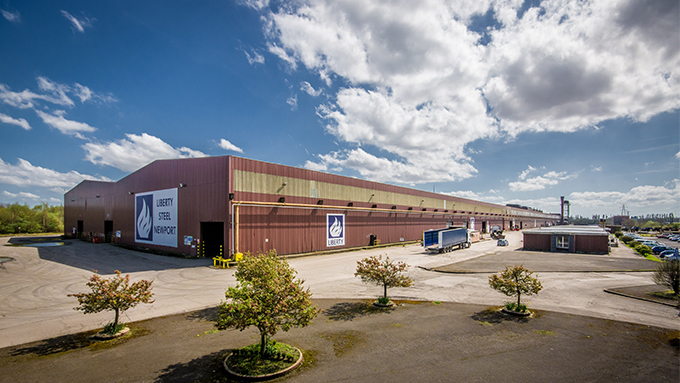Liberty Steel, part of metals and energy group GFG Alliance, owned by magnate Sanjeev Gupta and his family, said on May 24 that as part of the company’s “restructuring” it is looking to sell its aerospace and special alloys steel business in Stocksbridge, UK and its downstream plants, the narrow strip mill at Brinsworth and Performance Steels at West Bromwich.
Liberty is experiencing cash-flow problems after its biggest financier Greensill Capital collapsed in March and is seeking fresh capital. The company recently said that in the past the company said that it will “fix or sell underperforming units” in a restructuring and refinancing drive as it recovers from Greensill’s collapse.
According to Liberty, the sale of Stocksbridge, which produces steel for the aerospace, auto and other highly engineered applications, “will allow Liberty to focus on developing its Rotherham plant, including its electric arc furnaces into a 2 million tonnes [per year] recycled greensteel plant.”
Also in the UK, Liberty said it has started the formal sale process of Liberty Aluminium Technologies and Liberty Pressing Solutions.
Union reaction
UK unions said that Stocksbridge and its downstream plants – as they are strategically important businesses for the UK’s defense, energy and aerospace sectors – must be “secured” and they asked Sanjeev Gupta to keep his promise “that none of our steel plants will close on his watch.”
“Liberty must act as a responsible seller and run a transparent sales process which fully engages the trade unions. We will expect to meet any potential buyer to scrutinize their plans and test their commitment to the workforce and to our industry,” the unions stated May 24.
“Whilst we are encouraged that Liberty and Credit Suisse appear to be making progress on the refinancing, we need to see a solution to inject cash into the UK as a matter of urgency.”
According to recent UK media reports Chinese steel producer Jingye Group, owner of British Steel, the UK’s second largest steelmaker, is now eyeing Liberty Steel’s UK plants, as well as Indian producer JSW. JSW said that such reports “are not only speculative but also misleading and mischievous. We have made and will continue to make disclosures in compliance with our obligations under SEBI (Listing Obligations and Disclosure Requirements) Regulations,” JSW said in a statement.
A British Steel spokesman said that they do not comment on commercial inquiries.
Liberty UK’s plants are not the only cash-strapped plants in the group. Italian unions told Platts that the re-rolling plant La Magona in Tuscany, Italy, also needs fresh capital.
“The situation is critical as we don’t have new raw materials coming in and we need to use all our materials in stock,” a union official told Platts on May 24, adding that from next week La Magona’s pickling line No. 4 and coated line No. 1 will suspend production, while pickling line No. 5 and coated line No. 2 will continue until the first two weeks of June. Italian unions have scheduled a meeting with Liberty on May 25
News of the planned sales by Liberty UK coincided with Liberty Steel Group’s announcement that Sanjeev Gupta and his newly-formed Restructuring and Transformation Committee are in advanced discussions with Credit Suisse Asset Management (CS) to reach a formal standstill agreement on its Liberty Primary Metals Australia business while refinancing is completed that will repay CS out in full.
“Both parties also made significant progress in agreeing a framework to resolve GFG Alliance’s remaining exposure with CS,” a press release said. Credit Suisse lost more than GBP 1bn ($1.42bn) when Greensill went down, according to UK media.
Liberty Steel has grown rapidly in recent years, including via acquisition of troubled assets, to become Europe’s fourth largest steelmaker with 6 million mt/year of crude steel production capacity in the region.
Liberty Steel UK is the third largest steelmaker in the country – with nine sites across England, Scotland and Wales – producing both flat and long products.
— Annalisa Villa






